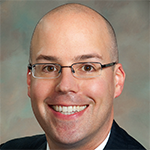
On June 9, 2015, Steven J. Stack, MD, FACEP, was sworn in as President of the American Medical Association (AMA)—the first emergency physician to hold that office. Dr. Stack recently spoke with ACEP Now Medical Editor-in-Chief Kevin Klauer, DO, EJD, FACEP, about the projected physician shortage, the role of advanced practice providers, and how he developed his speaking skills.
Check out the May and June issues of ACEP Now to read the first two parts of this conversation
Dr. Kevin Klauer: What are your thoughts on where the AMA thinks the physician shortage is going and what it might be able to do to impact that? As a related question, has the AMA really taken a position on advanced practice providers, such as advanced practice nurses who are pushing for autonomous practice? There are physicians who are threatened by that in particular when there are initiatives to have advanced practice nurses who have completed doctoral programs claim the title of doctor.
Dr. Steven Stack: There are three parts here. The first one is there is a physician shortage. The physician shortage will get worse, and it’s unacceptable. Apart from the other explanations in the system, there is a dire need for more doctors, real doctors, physicians, and doctors of osteopathic medicine. I believe it was the Association of American Medical Colleges that just came out with a research piece that projected—even in a rosy case scenario where other clinicians, nurse practitioners (NPs), physician assistants (PAs), and others play a bigger role—over the next decade a shortage of 45,000 or more physicians.1 That’s even with all of these other clinicians coming into the system and doing more. We’re creating more medical schools, and we’re graduating more medical students, but the federal government is the funder for graduate medical education and residencies, and they refuse to add more money to the pool to create more slots. It’s been frozen for a very long time, and in fact, both parties have introduced cuts to graduate medical education funding. They are not only not adding to it, they are 180 degrees in the wrong direction and ready to cut. Unfortunately, there is no interest from other participants. Thus far, the graduate medical education community has been unable to come up with a new approach to fix that, and it has to be fixed. The AMA, through its advocacy, continues to press for the need to expand residency slots because, in this year’s match we just finished, around 1,100 U.S. medical grads did not match. I’ll give you a story to make that even worse. There are young adults who have graduated from schools like Johns Hopkins, which is ranked as the best medical school in the country most years, who did not match. Now, if you can get into college and get into the best medical school in the United States after college and you can’t match at the end of that, we’ve got a problem. If the smartest people in the nation can’t finish their training and have to go to work at a restaurant waiting tables or drive a taxi to get through their next year while they hope they can match the following year, it’s really a horrible situation. It is utterly unacceptable, but it’s not been easy to find a way to fix that structure. Something every bit as profound as what we’re doing for reforming medical schools will probably need to happen in the residency and fellowship training world, but it’s a difficulty where a path to do so has not yet materialized.
Pages: 1 2 3 4 5 | Single Page





6 Responses to “AMA President Dr. Steven Stack Talks Physician Shortages and APPs”
September 20, 2015
Robert MonzingoAs a practicing PA I agree mostly with your response about the use APP’s in the face of physician shortages. Physicians are the most highly trained, and it is improper for a PA or NP to obtain a Doctorate and present themselves as a doctor to their patients. With that being said there is a place for increased (not complete) autonomy especially at the acute or primary care level. Every good advance practice provider and primary physician should know their limitations and have a low threshold for referral when needed. The physicians, PA’s, and NP’s and other advance practice clinicians need to work harder to put medical politics aside bring together a cohesive plan of team health care.
September 21, 2015
David Pecora, PAAs a physician assistant in emergency medicine, I agree with Dr. Stack’s comments and statements. Since PA’s are trained in the medical model, and where physicians take a significant role in our training and supervision, PA’s want to continue with the “physician-PA” team model.
The physician is the captain of the ship. We as PA’s enjoy an excellent working relationship with out physician supervisors and colleagues.
As far as nursing providers declaring independent practice, they do have a license to practice NURSING. Where my confusion begins is why nursing personell use medical diagnosis for charting, as well as for billing purposes.
As a former nurse, I was taught that a nursing diagnosis must NOT be written as a medical diagnosis (this would be practicing medicine without a license). An example of a nursing diagnosis for a skin laceration would be: Actual impaired tissue integrity related to disruption of tissue.
I hope that patients will not become confused when a health care provider with a PhD or a DNP, introduces themselves as ‘doctor”.
September 25, 2015
Dayna JaynstrinI both agree and disagree with Dr. Stacks’ comments concerning advanced practice providers. If he is going to make statements concerning the AMA’s stance on this subject, then he should be knowledgeable about the difference in PA’s vs NP’s (which I think he is, but rather he choose the “easy” response of just grouping several different professions together). The PA profession has never attempted to depart from the Physician/PA relationship and the PAEA has stated the terminal degree for the PA profession as a masters degree. Dr. Stack should not have taken the easy road in making a blanket statement about all advanced practice providers and called a spade a spade and stated the AMA’s true stance on the NP/DNP movement. As a PA I am tired of being lumped in with the NP community, not because I don’t respect them as providers, but because we come from entirely different aspects of medical training, practice style, future professional goals, etc.
September 28, 2015
Russell Wilson, PA-CChoosing to lump the PA community in with the NP community either shows Dr. Stack’s laziness in accurately researching the topic at hand; OR shows his ignorance in the subject matter. Either option is not a desirable trait in someone who holds a leadership position. I am not a physician, Doctor, MD or DO nor do I wish to be. What I do want is for physicians to stop comparing PAs to NPs, stop calling me a mid-level provider, and at a minimum respect the role the PA plays in the current healthcare system.
October 1, 2015
SEMPA Board of DirectorsDear Editor,
This letter is in response to the article featured in the September 14, 2015 issue of ACEP Now with Kevin Klauer, DO, EJD, FACEP and Steven J. Stack, MD, FACEP, AMA President.
On behalf of the Society of Emergency Medicine Physician Assistants (SEMPA), the national organization that represents all physician assistants who practice in the emergency setting, we would like to offer supportive comments and some essential clarification of the PA role in a physician-led health care team.
As PAs, we wholeheartedly agree that physicians, by virtue of educational process, training and specialty certification, are the most highly educated and trained clinicians in the health care system. We also absolutely agree with the Truth in Advertising campaign that the AMA has spearheaded. As clinicians, who also have the patient’s greatest interests at heart, PAs by law, statute, and professional ethics, attempt to avoid any confusion or misrepresentation of our role, our title, and the profession. We feel that despite any advanced degree at the doctorate level, it is imperative that only a MD or DO be referred to as doctor in the clinical setting.
SEMPA, as the organization that represents emergency medicine PAs, would like to clarify that while we support the term of Advanced Practice Provider (APP) when referring to PAs and NPs collectively, PAs and NPs are two professionally independent groups, each with their own individual unique philosophy, educational/training model, and goals. PAs value being members of a team that provides excellent care for patients, and believe that the team approach serves the patient more completely. For nearly 50 years, we, as physician assistants, have practiced medicine, with physician supervision, as members of a physician led healthcare team. PAs have never sought independent practice, nor do we foresee a change in the philosophy of our profession.
In emergency departments across the country, PAs practice in a variety of roles to evaluate and manage patients and are proud of the work we do in emergency medicine. As highly skilled clinicians, we competently evaluate and treat a variety of emergency and acute care conditions with the clinical support and guidance of our supervising physicians and do not aspire to be perceived as physicians.
Our professional policies endorse our roles as members of the health care team, which recognizes the physician as the leader of that team, and we will continue to make clear and consistent efforts to communicate our stance, which does not include independent practice.
Respectfully submitted,
The SEMPA Board of Directors
October 2, 2015
Tim Bewley, PAPhysicians are the most highly trained healthcare professional, I agree. There are not the only healthcare profession with access to excellent universities and clinical training. Medicine is not an all or nothing field and your interview reflects a dismissive view of the skills and abilities of physician assistants. I also believe in the 10,000 hour rule to achieve mastery but going to medical school and residency are not the exclusive path to achieving mastery in a given field.That is not to say that it is the same for a PA as it is for a physician. When I reached my 10,000 hours it did not make me a physician but it made me a solid clinician with excellent skills. The AMA would be better served by embracing the PA profession as we have embraced the medical profession. PAs have always promoted the physician/PA team but an increasing number of physicians prefer to work with NPs because they don’t want to supervise PAs. This stance has been a boon to the NP profession